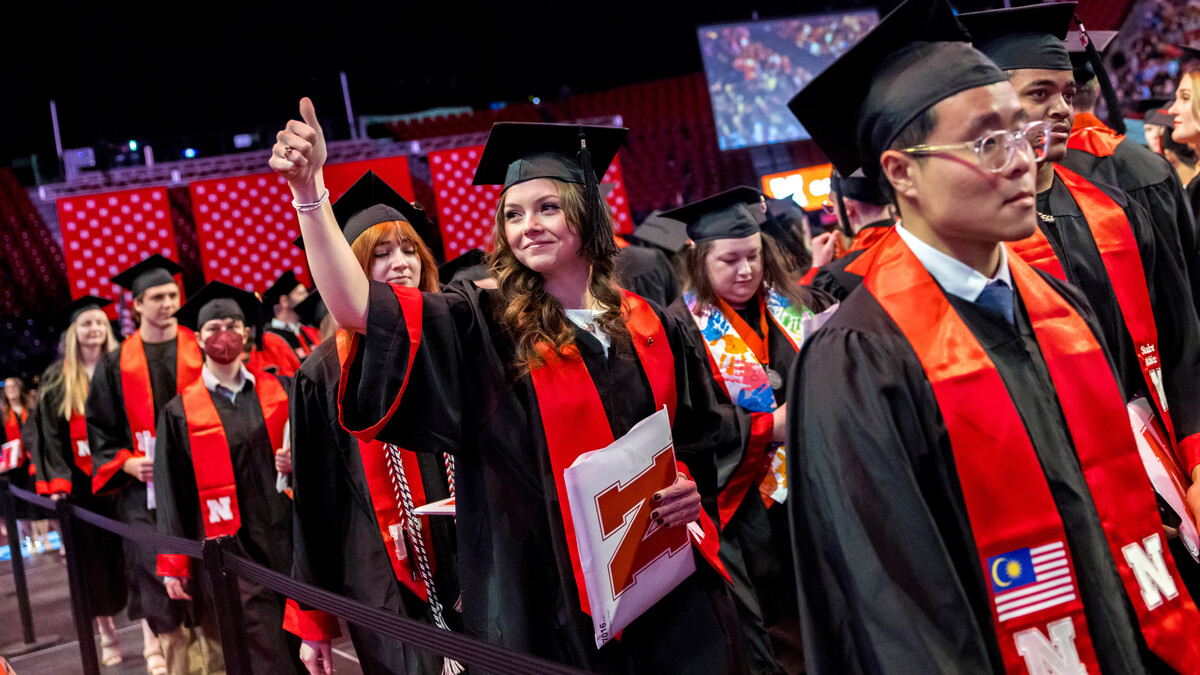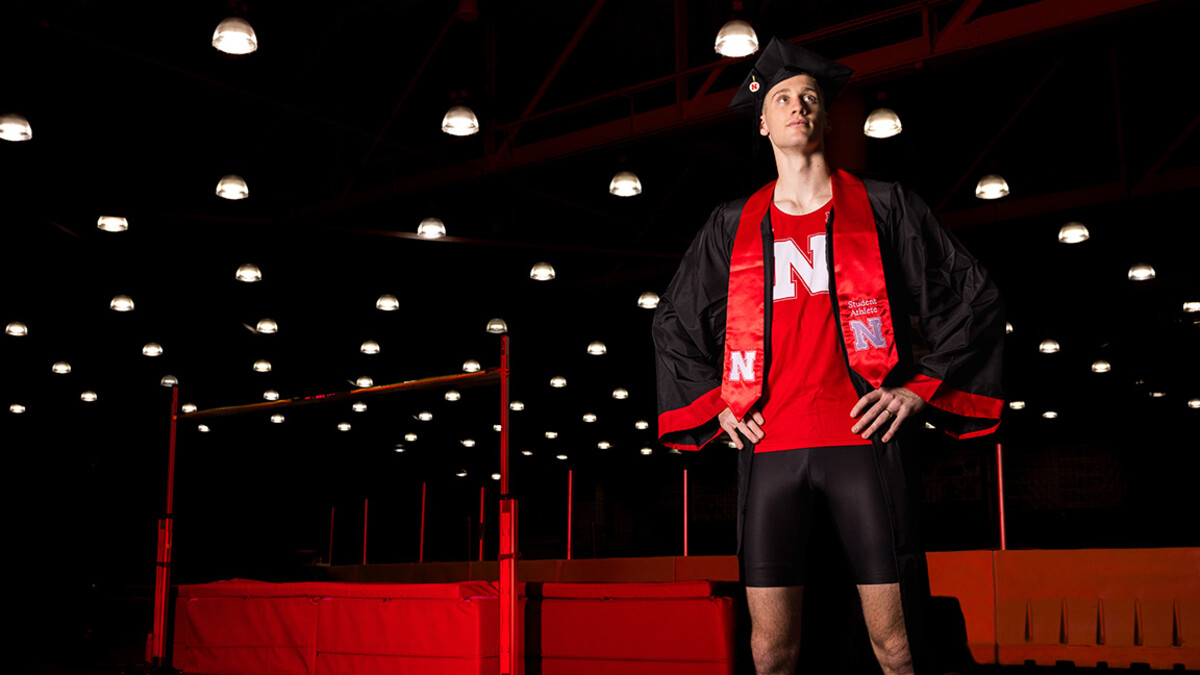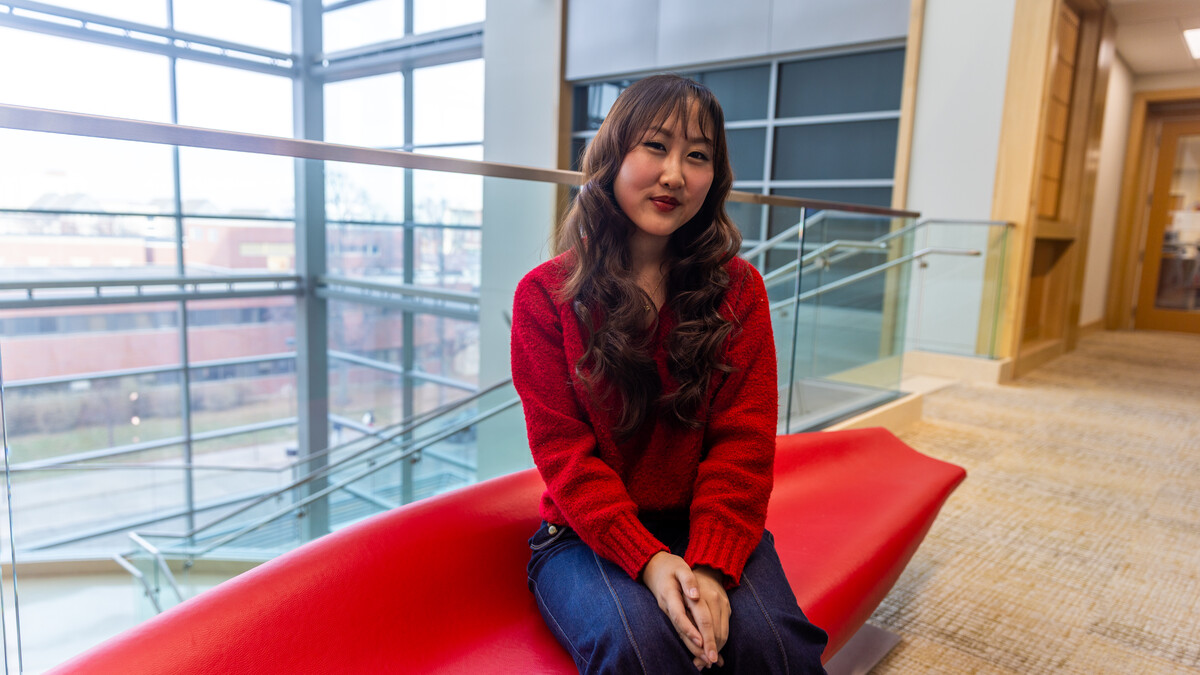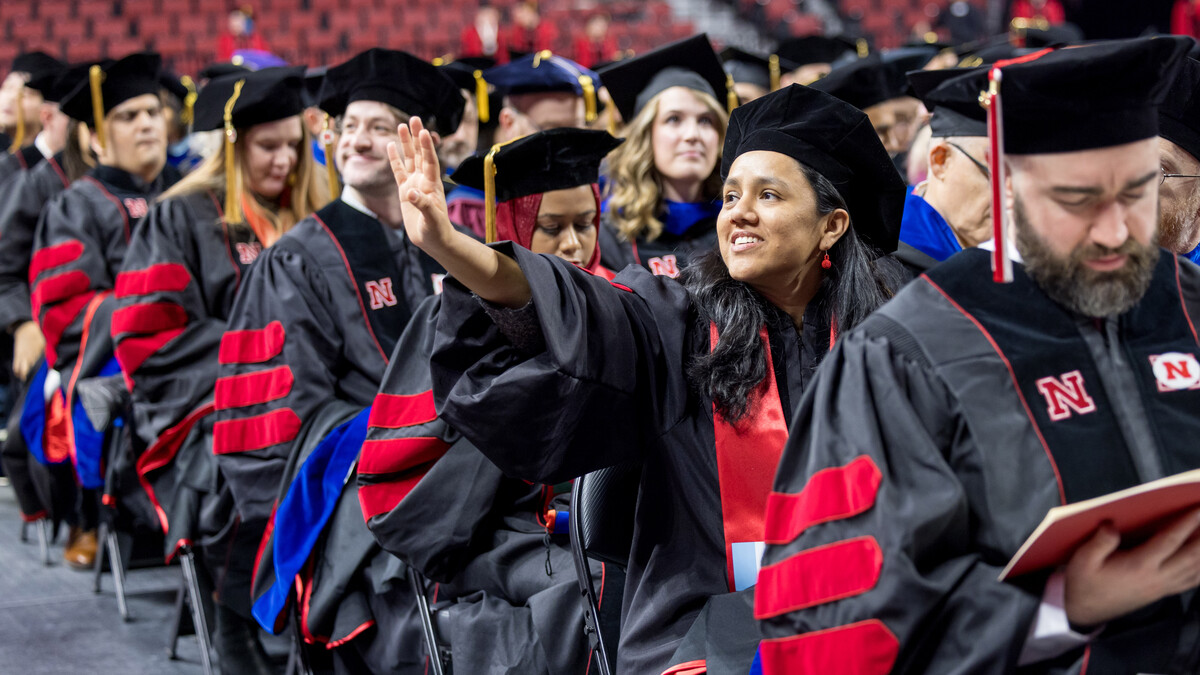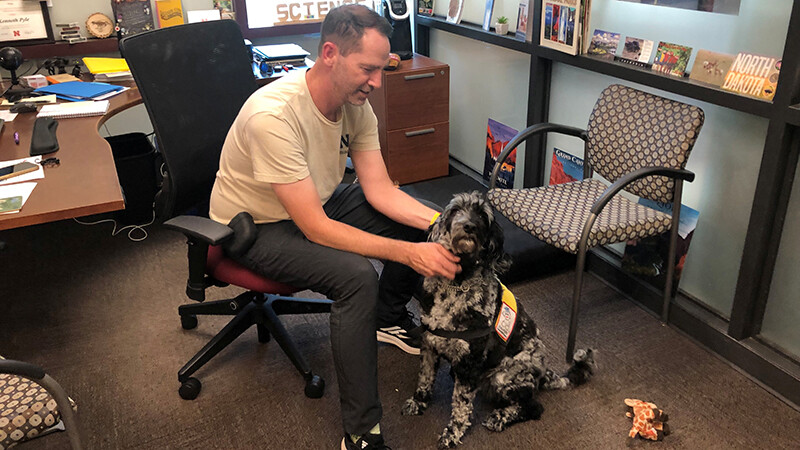
River Pyle has been working like a dog since starting Aug. 19 at the School of Natural Resources. Yet, with nary a word to anyone, the new employee has managed to befriend all who have come in contact with her.
Well, except Homer.
River and her older brother, Jonas, are therapy dogs working alongside Kenneth Pyle, student success coach. The labradoodles greet students and staff and offer an empathetic ear and occasional canine cuddle.
Of course, there is that teensy-weensy matter about Homer. When Pyle took River and Jonas to a Saltdogs game, the dogs made it clear they didn't care for Homer, the mascot costumed as a dog. Still, like most pups, the two readily accept others and serve as a judgment-free sounding board.
"What I see as a benefit of having dogs around is they break down barriers," Pyle said about his canine coworkers. "They really melt people's hearts, if you will, and get people talking to each other."
While Pyle advises students and helps them make connections on campus, either dog may lie on a cushion in his office, their presence a comfort. Pyle said students come to his office for everything from celebrating achieved goals to dealing with the shame or anxiety about falling short on a grade or goal.
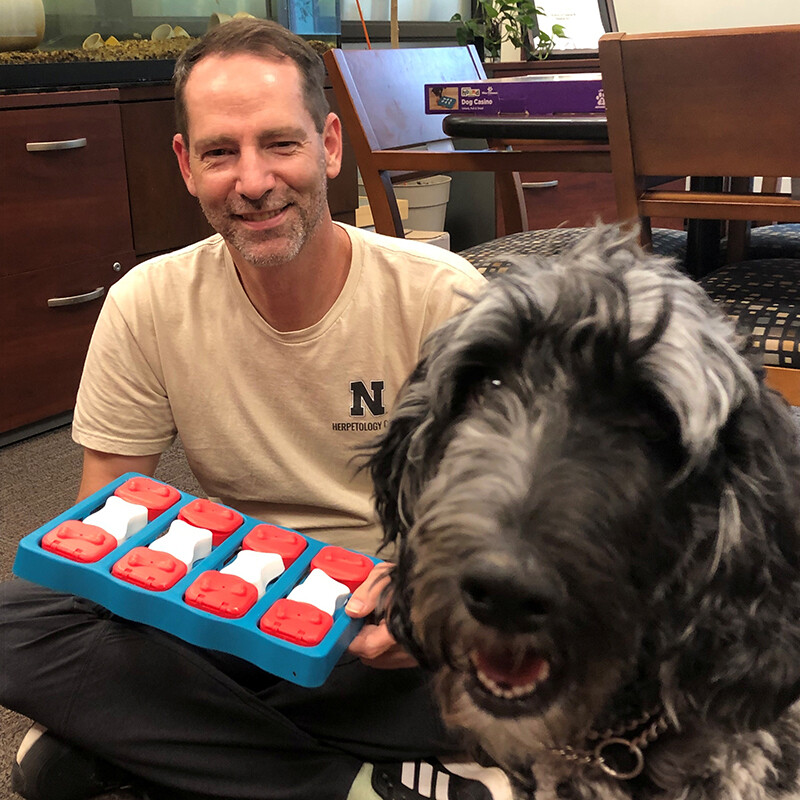
"They had high hopes, and just for one reason or another, outside influences, inside influences, whatever it was, it's hard to come in and say, 'You know what? I made some bad grades, and I need to take those classes over again. I need a game plan,'" Pyle said. "So, I think, having the dogs in here, it’s just like, 'You don't have to look at me. You can look at the dogs.'"
The dogs also break the ice at meet-and-greets. Pyle said Jonas has been good at getting people talking and River has been really attentive and affectionate. Both dogs typically match the energy of anyone approaching them, with River especially echoing excitement and enthusiasm. He said the summer was a good time to start River working at the office and she has seemed excited about her new job.
"Her whole body language has been just like she's dancing on her toes almost," Pyle said.
Unlike Jonas, River loves to play fetch, and Pyle takes her outside occasionally for a run on the School of Natural Resources prairie. For inside play, he has new dog board games students can check out to play with the dogs. The games usually consist of hiding treats in the game and then allowing the dog to find them. River has become an ace at these.
Before the board games arrived, Jonas had already gained weight due to people dropping by with treats. That can be a drawback of being a good boy. Pyle said he usually tries to supply the treats himself to monitor food intake.
Dennis Ferraro, a herpetology professor, befriended both dogs quickly and noticed differences between them.
"Besides being smaller and therefore easier to sit with in the beanbag chair [in the student services area], River is not motivated by food so doesn’t look for food handouts," he said. "Instead, River is motivated by attention and wants you to interact with her."
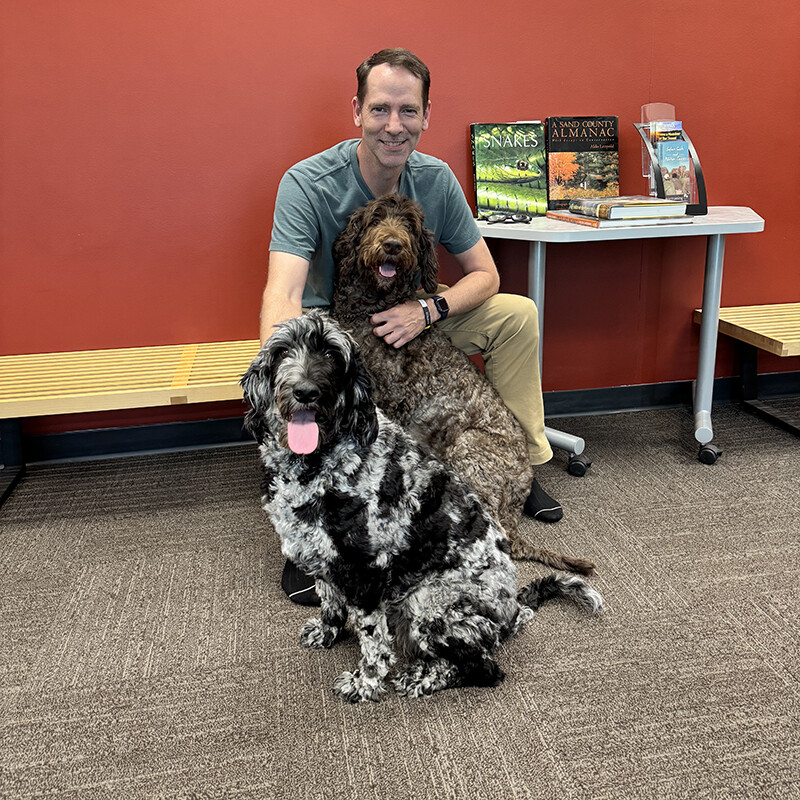
Because River is smaller than Jonas, some people find her less intimidating. Pyle said neither dog has had a negative interaction in the school but sometimes international graduate students are surprised to see a dog in the building.
Pyle will coach people on how to interact comfortably with the dogs, if desired. When people need to meet with him but are afraid of dogs, have allergies to them, dislike them or just don’t want to be around them, Pyle will leave the dogs at home that day or arrange a Zoom meeting.
The dogs are trained not to jump on people or bark at them or other animals, and no one is allowed to tease them.
"They don't horseplay," Pyle said. "There's no teeth, no biting. That's not allowed. That's a hard no.”
He also never forces the dogs to interact with people.
"It's all if the dog wants to interact, just because they are very similar to us," he said. "Like, if somebody's forcing you to interact and forcing you to hug other people, and you don't want to hug other people, that's not a good thing."
Pyle started his position as a student success coach in January 2023 with Jonas at his side and on his resume. River is 2½ years old and began work as a therapy dog after 1½ years of training.
Many universities across the nation have therapy dogs or comfort dogs working on campus. The dogs supplement mental health programs for students and employees. Unlike service dogs, they are not intended to perform tasks or interact solely with their owner but to interact well with the public and other dogs. Pyle's dogs were trained and certified as therapy dogs through Domesti-PUPS.
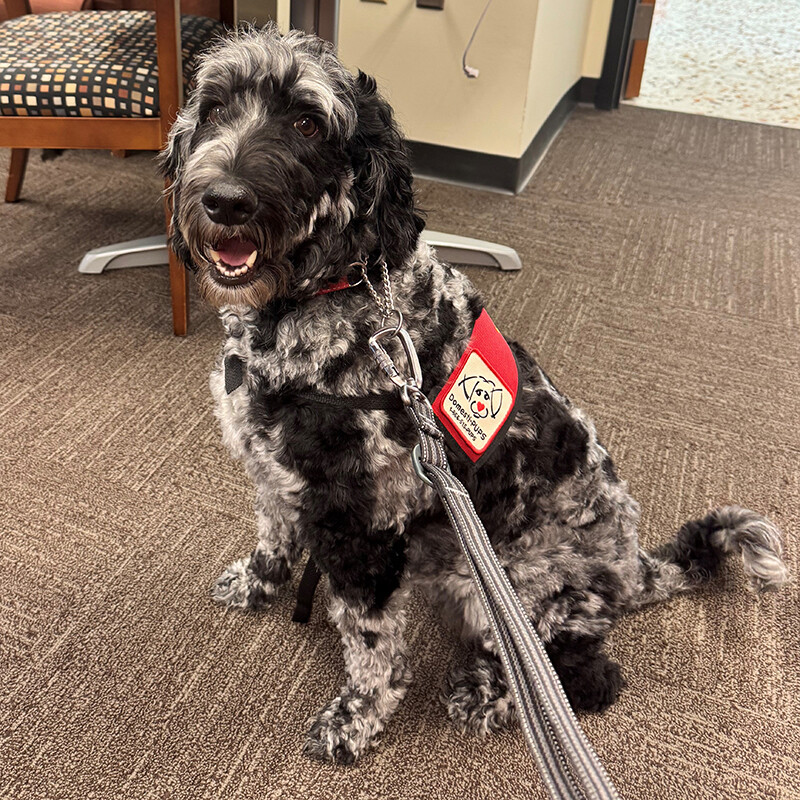
Pyle said most students he comes across understand the difference between service dogs and therapy dogs and almost always ask to pet Jonas or River.
"I have so many people surprised in a good way by their presence and just really eager to come and say hi, and that just, honestly, starts conversations," he said. "I think that has been the power of both of them."
The dogs may have a little more work to do on getting to know large mascots like Homer, but Pyle has reason to place confidence in them.
"Dogs are icebreakers," he said.



